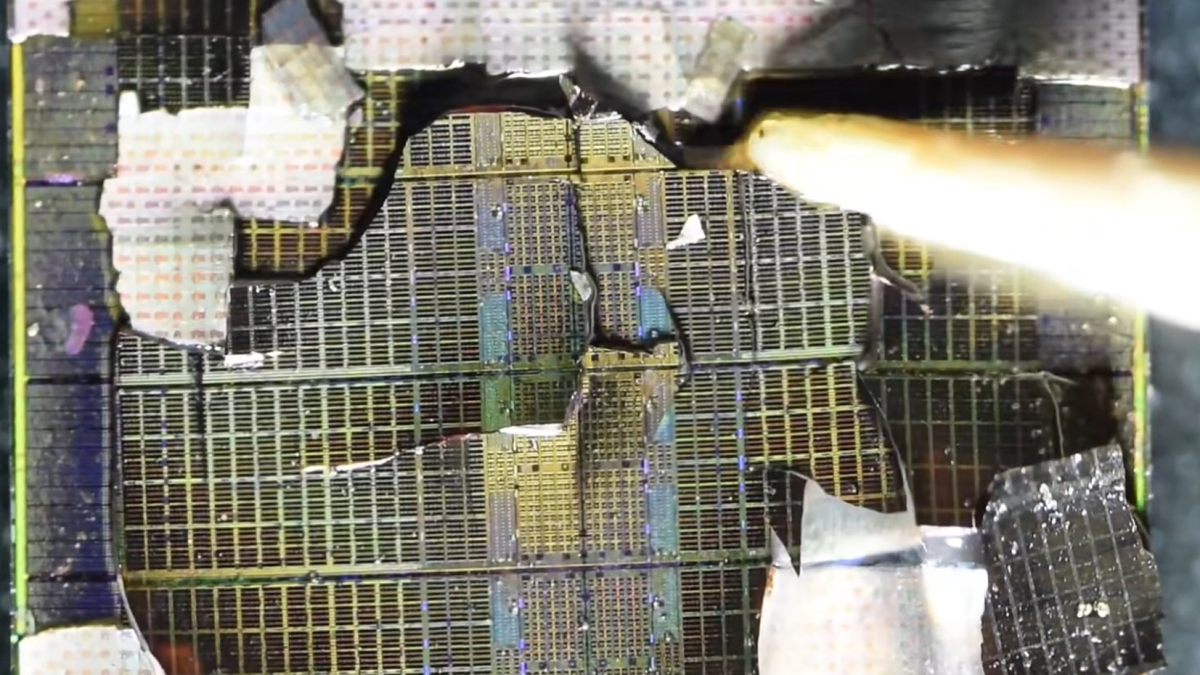One Bilibili user used a blowtorch on his Ryzen 7 9800X3D (via @9550pro on X) to examine the internal components of AMD’s latest gaming champ.
The video of the autopsy“, filmed by someone whose username on Bilibili translates to “all nonsense,” shows the 9800X3D’s heat spreader removed using a blowtorch. AMD uses solder to connect the CPU to the heat spreader, which only melts at very high temperatures, hence the need for a blowtorch to remove it.
On Ryzen CPUs that lack 3D V-Cache, it’s easy to get a shot of the CPU die after removing the heatspreader. However, 3D V-Cache models use stacking technology to combine the core complex die (CCD), which contains the CPU cores, with the 3D V-Cache. On Ryzen 9000X3D CPUs, the CCD is on top of the 3D V-Cache, but it was the other way around in previous generations. AMD now puts the CCD on top to help it cool down faster, which in turn helps increase frequency.
To get a peek at the CCD and the 3D V-Cache die, the Bilibili user appears to have torn it off the circuit board. This naturally caused quite a bit of damage and shattered the V-Cache chip. Despite that, the video offers a pretty good look at the bottom side of the cache-filled chip, and we also get a decent view of the CCD on top. X user @94G8LA even reconstructed what the Zen 5 CCD and 3D V-Cache should look like.
The 9800X3D doesn’t use unique chips; this Zen 5 CCD is used in other Ryzen 9000 CPUs, and the 3D V-Cache is very similar to the one used in Ryzen 7000X3D processors. These die shots don’t exactly reveal anything we didn’t already know, though they are exciting.
The CPU’s lack of uniqueness didn’t stop it from substantially improving over the 7800X3D in our review. Placing the CCD on top made a big difference, showing that the strategy behind 3D chip stacking isn’t fully developed yet. Perhaps one day, we’ll even see the CCD, 3D V-Cache, and IO die all in a single stack, at least as soon as AMD figures out the best order for these dies to be in.










